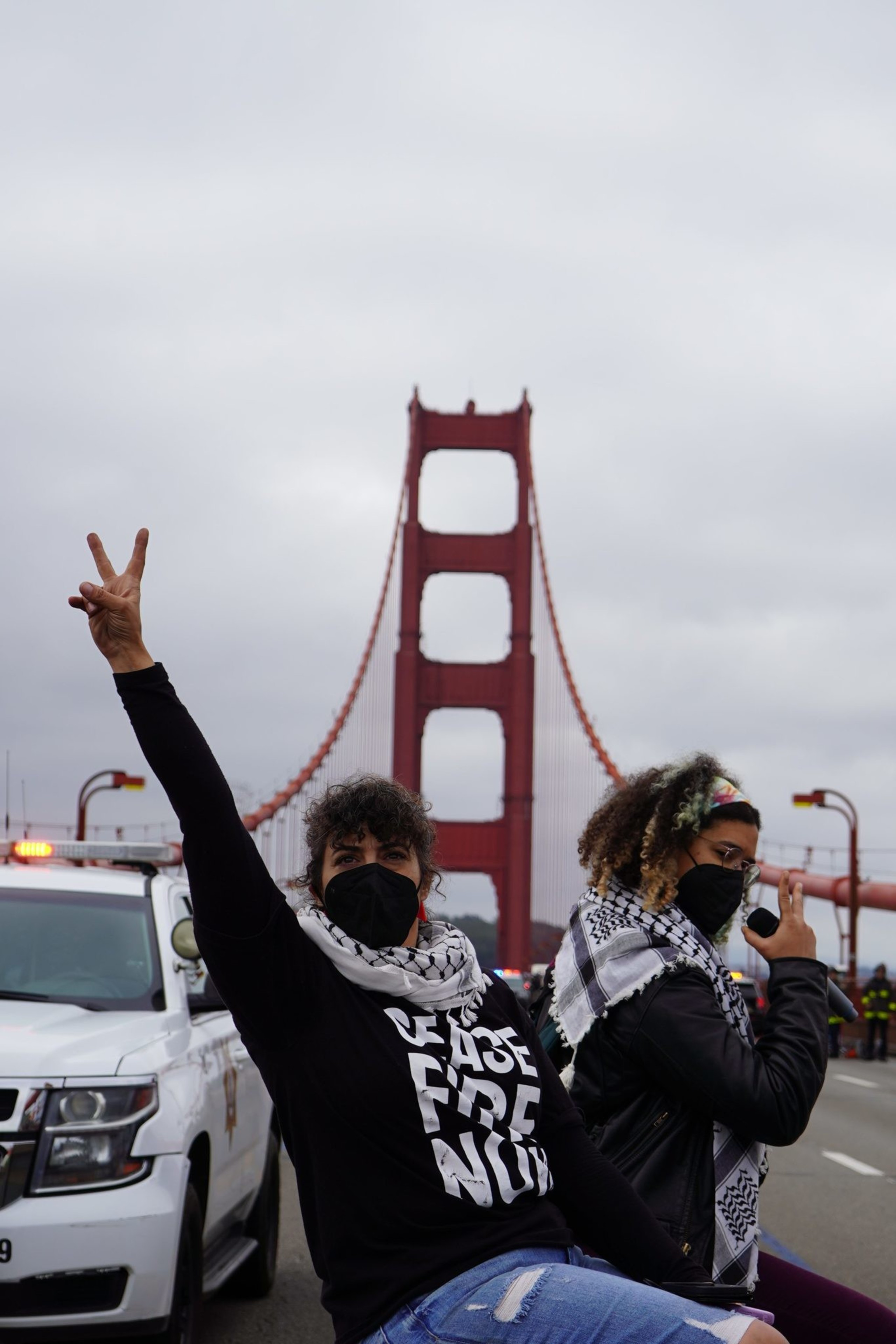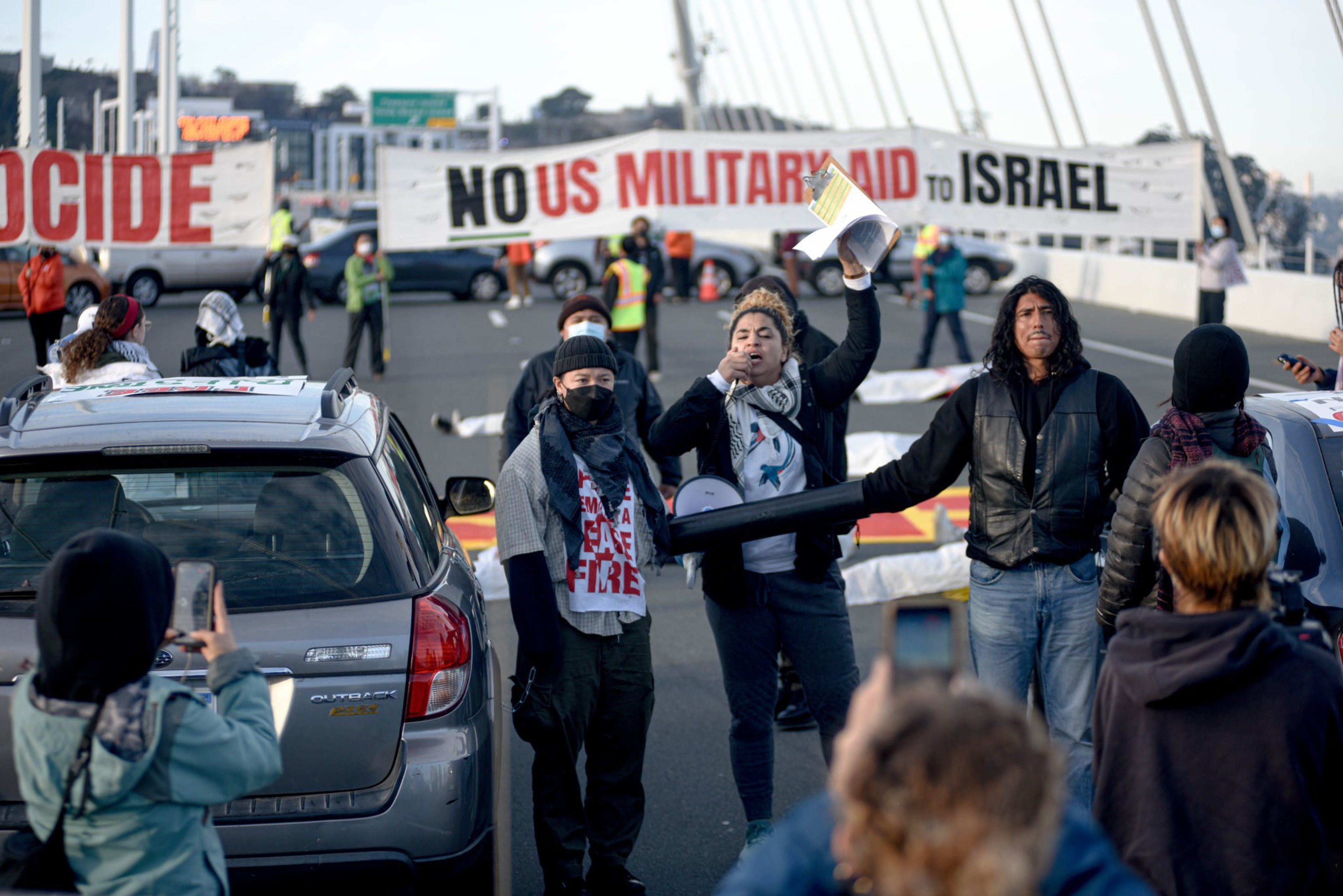The San Francisco District Attorney is seeking to charge protesters who stopped traffic on Bay Area bridges with false imprisonment and force them to pay restitution in what appears to be part of a strategy by law enforcement to deter disruptive protests with the threat of harsh legal penalties.
In a Wednesday morning tweet (opens in new tab), Brooke Jenkins put out a call to anyone trapped on the Golden Gate Bridge on April 15, saying they may be victims who can receive compensation.
Jenkins said anyone who spent time trapped on the bridge should get into contact with California Highway Patrol and provide a statement so you can “so you can be alleged as a victim. You may be entitled to restitution and have other victim rights guaranteed under Marsy’s law.”
In response to follow-up questions from The Standard, the DA’s Office declined to elaborate on the decision to treat trapped drivers as victims of false imprisonment.
"Jenkins' criminalization of dissent runs disturbingly parallel to the violent calls being made by the far-right.”
The Arab Resource and Organizing Center's Lara Kiswani
The CHP arrested 26 protesters on the Golden Gate Bridge on April 15, alleging they committed conspiracy, a felony, instead of citing and releasing them on misdemeanor charges as has been the practice after similar protests in the past.
Criminal defense attorneys and legal experts say Jenkins’ newest approach to prosecuting protesters may be on shaky ground in defining delayed commuters as victims. And they contend that the CHP conspiracy arrests are being used to preempt future protests rather than secure justice for Monday’s events.
“That would be a very big stretch on restitution,” Paul DeMeester, a longtime San Francisco criminal defense attorney, said. “I’m not even sure they could be called a victim of such action.”
In past mass prosecutions, protesters have faced misdemeanor charges often for blocking a roadway and for not obeying the orders of law enforcement.

One of the only instances of Jenkins attempting to secure restitution for an individual following a protest was in the case of a person who experienced health issues on the Bay Bridge when it was blocked on Nov. 16, 2023, in a protest calling for a cease-fire in Gaza, said Rachel Lederman, with the Center for Protest Law and Litigation. That person required an ambulance, the cost of which provided a financial basis for restitution.
Lederman, who represents some of the protesters arrested on both bridges, objected to extending that rationale to cases where people affected experienced no direct financial impacts.
“That would be going too far to try and come up with restitution just because someone was late to work,” she said.
Protesters who commit misdemeanors are typically cited and released. But citation and release is not allowed for felony arrests, Lederman noted, so Monday’s protesters charged with conspiracy were booked into jail and only released early Wednesday, she said.

The San Francisco Public Defender’s Office said in a statement that such tactics amount to intimidation of people exercising a time-honored tradition of nonviolent protest.
The invocation of conspiracy charges, the office said, amounts to a form of “state violence” that could “chill the exercise of First Amendment rights—in this case, protesters against the ongoing genocide of Palestinians.”
Lara Kiswani, who is with Arab Resource and Organizing Center, members of which have been involved in bridge protests, was more pointed still in her claim that the actions of the DA are meant to silence dissent.
“While DA Jenkins’ legal claims are absurd, ridiculous and distracting—she is also veering toward very dangerous waters. Jenkins’ criminalization of dissent runs disturbingly parallel to the violent calls being made by the far-right,” Kiswani said. “We stand completely with all people of conscience who put their bodies on the line to end war and genocide.”
Jenkins pushed back against the charge that she’s seeking to chill legitimate protest with her office’s tactics in a statement.
“While we must protect avenues for free speech, the exercise of free speech can not compromise public safety,” Jenkins said.
